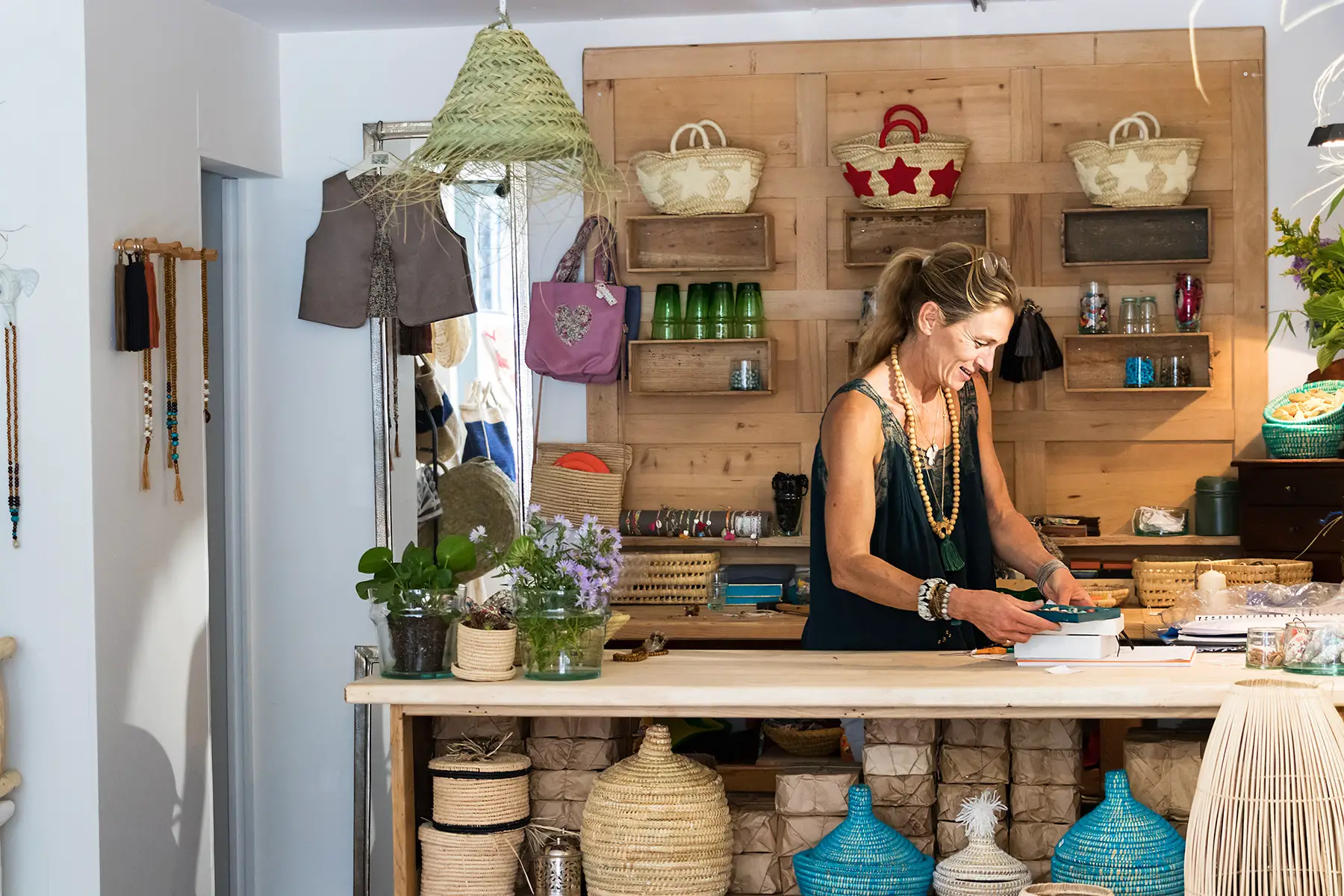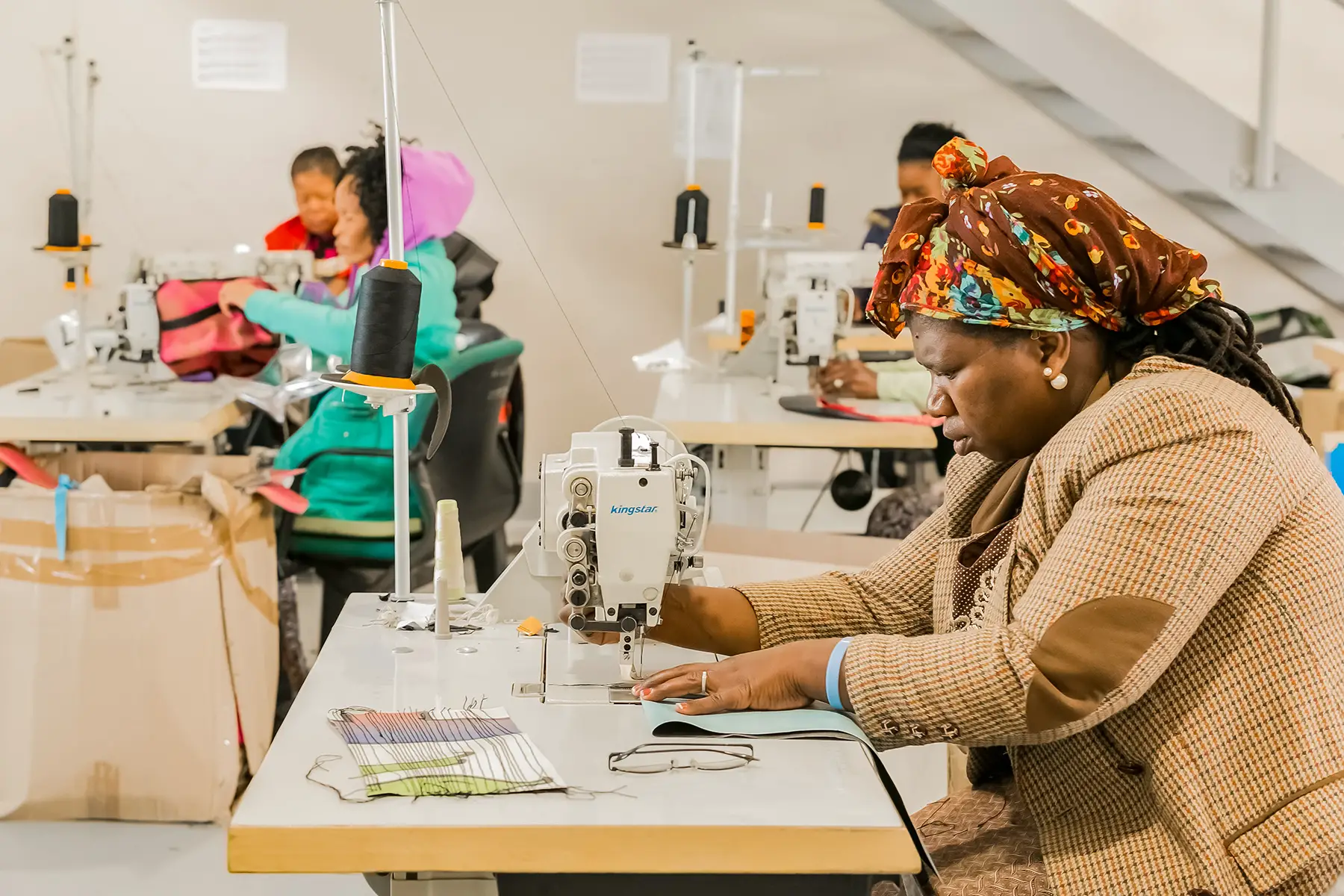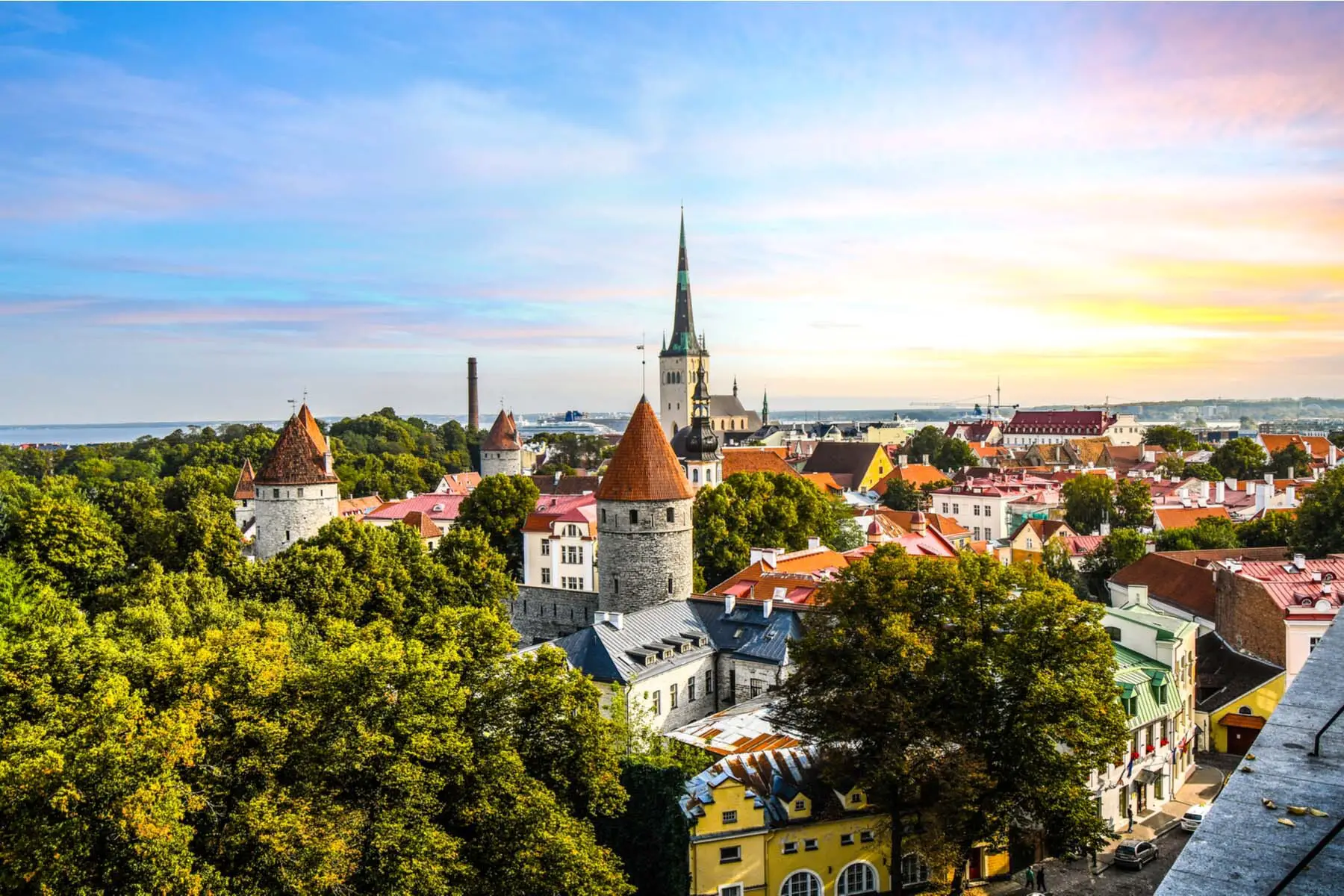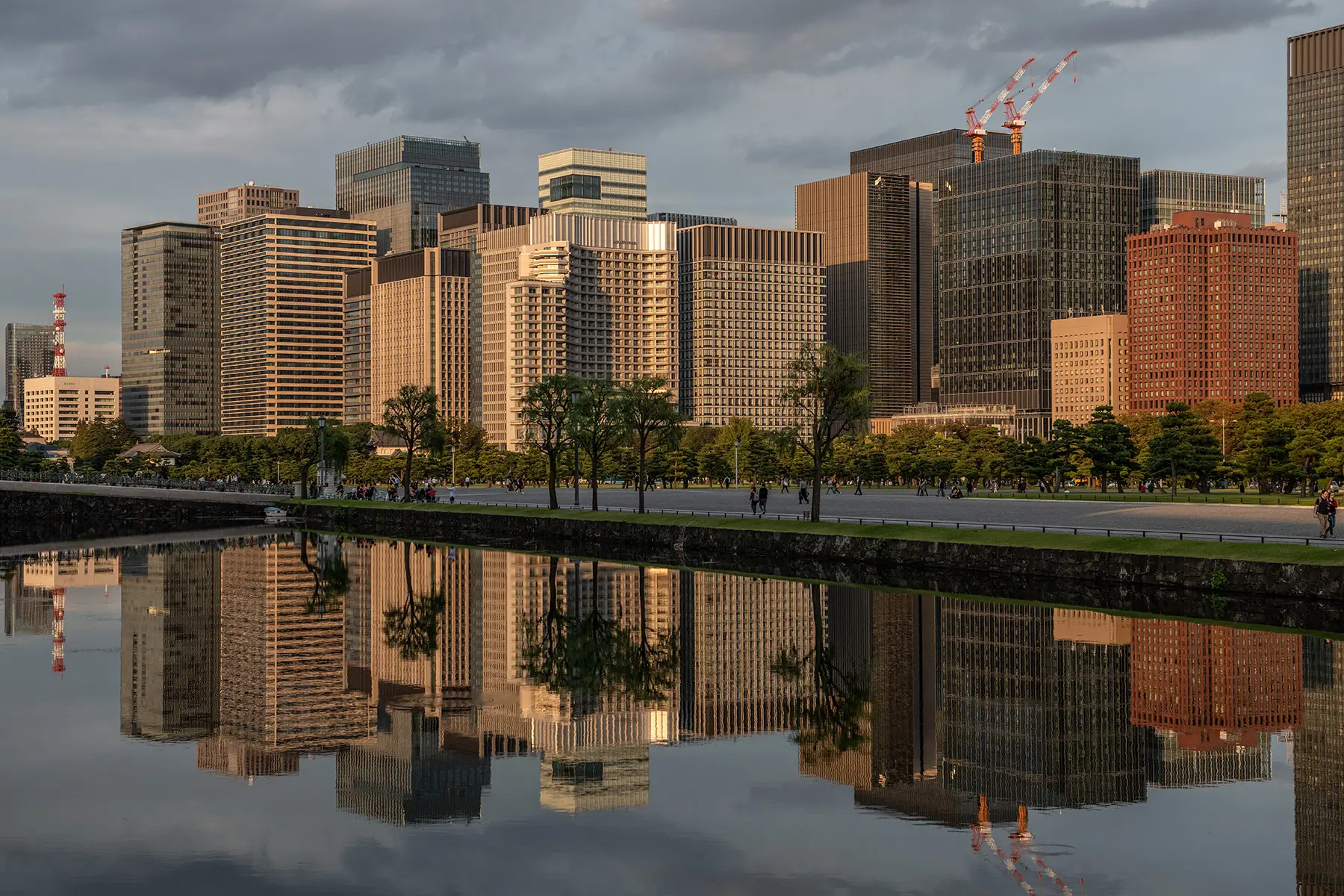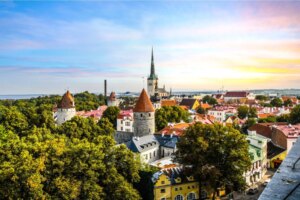The name of the game is capitalism. The board is the world, and the players are brimming with fresh ideas and bold ambitions. Are you ready to play? We’ve listed the best startup visa programs available to help you decide where to rocket launch your next big idea.
Continue reading for the following information:
The global business landscape
Countries around the world are rolling out the welcome mat for foreign entrepreneurs looking to disrupt traditional industries. With their business visa programs, these countries are looking to attract bold new ideas that can spark local economic growth and create jobs.

Each country’s visa program has its own spin, of course. The US might call for a big investment, while Thailand rolls out the red carpet for startups with minimal capital. Germany is keen on skilled specialists in established industries, and South Korea has a keen eye for innovators who push boundaries.
The scemes also come with different requirements, timelines, and perks. Choosing the right one means understanding which program aligns with your business goals, your resources, and where you want to make your mark.
Quick overview of available visa programs
There are various types of business visas, including:
- Startup or entrepreneur visa – aimed at foreign talent who want to start and run a business abroad. Designed for innovative and growth-focused ventures, this visa typically requires a solid business plan, proof of funds, and sometimes endorsement from a local incubator. Unlike other visas, startup visas generally have lower investment requirements, making them accessible for early-stage businesses. If your business succeeds, these visas often have residency options.
- Investor or golden visa – tailored to wealthy venture capitalists looking for their next investment. Many of these visas offer a pathway to permanent residency, or even citizenship, in exchange for a significant financial investment. Investment requirements vary by country, often starting in the hundreds of thousands.
Key destinations with a business or startup visa
Canada – North America’s startup haven
From its entrepreneur-friendly policies to its buzzing startup hubs, Canada is a prime destination for expats ready to take their ideas global. Their startup visa offers permanent residency right off the bat, making it one of the most appealing programs in the world.
Ranking 4th best globally for its startup ecosystem (Global Startup Ecosystem Index, 2024), Canada combines economic and political stability, a highly skilled workforce, and a thriving innovation culture to create a welcoming environment for fresh ideas and emerging startups.

The government also actively invests in emerging industries, particularly in AI, clean energy, and advanced manufacturing. Incentives like tax credits for research and development (SR&ED) ensure there’s room for disruption and growth in cutting-edge sectors.
Starting a business in Canada is straightforward, with most provinces offering online registration and incorporation platforms. Depending on the province, you can register your company and obtain tax numbers in as little as a few days.
Expats can take advantage of Canada’s Startup Visa program. To qualify, you’ll need a business idea that is supported by a designated organization (such as an incubator, venture capital fund, or angel investor group). You also need a minimum of CA $200,000 in investment or CA $75,000 from an angel investor group, depending on the backing organization.
Why choose Canada?
- Ease of doing business: streamlined online registration with additional support for R&D-heavy startups
- Permanent residency options: the startup visa offers direct access to permanent residence
- Strategic location: access to the US market and global trade agreements
- Innovation ecosystem: a diverse and thriving startup culture with funding and mentorship opportunities
Chile – the innovation hub of Latin America
Chile is a rising star for expats looking to launch a business in Latin America. The country ranks 3rd best in the region and 39th best in the world.
Its strong regulations, stable economy, and thriving startup culture have earned Chile its reputation as a hub for innovation and entrepreneurship. Plus, its strategic location on the Pacific coast and well-developed ports make the country an ideal base for exporting goods and services to over 65 markets worldwide.

Better still, the government has recently simplified business registration, allowing you to start a company in just one day. The online platform Tu Empresa en un Día eliminates much of the red tape, streamlining company formation and tax registration.
If you’re convinced Chile’s the place to go, you can apply for a startup visa (Visa Temporaria para Emprendedores). To qualify, you must present a clear business plan demonstrating your company’s economic impact and potential for innovation. While there’s no strict minimum capital requirement, proposals that showcase significant investment or job creation are favored.
Why choose Chile?
- Ease of doing business: simple online registration and pro-investor policies
- Support for entrepreneurs: visa programs and funding opportunities like Startup Chile
- Strategic location: a launchpad to the rest of Latin America and global markets
- Innovation ecosystem: a growing startup culture with plenty of support for tech and green energy ventures
France – Europe’s hotbed for entrepreneurship
Ranked 3rd best in the region and 8th best globally, France is cementing its place as a leader in innovation and entrepreneurship. The country provides unparalleled opportunities for industry disruptors looking to launch in Europe. Add to that the government’s ongoing reforms to cut bureaucracy, and it’s clear why the French startup scene is thriving.
France is doubling down on its commitment to technology and sustainability, making it a magnet for startups in sectors like AI, fintech, renewable energy, and biotech.

Initiatives like Station F, the world’s largest startup campus in Paris, provide unparalleled access to mentors and investors. Similarly, La French Tech fosters a business-friendly environment, providing resources and tools to simplify entrepreneurship for locals and expats alike.
Expats looking to start a business in France can apply for the French Tech Visa, a part of the Talent Passport program. Designed for innovative entrepreneurs, this startup visa allows you to set up a company while providing a clear pathway to long-term residency.
To qualify, you must present a viable business project endorsed by a recognized incubator or accelerator. Your idea must also align with France’s goals of fostering innovation and job creation.
Why choose France?
- Ease of doing business: streamlined registration processes and a growing pro-entrepreneurship culture
- Entrepreneur visa: the French Tech Visa offers a straightforward pathway to launching your business and obtaining residency
- Strategic location: a gateway to European markets with excellent connectivity to local and global hubs
- Innovation ecosystem: a vibrant startup culture supported by initiatives like La French Tech and Station F
New Zealand – a tech powerhouse in the Pacific
New Zealand isn’t just about stunning landscapes – it’s also a hub for big ideas. With a reputation for innovation, a stable economy, and a favorable business climate, it’s no wonder the country consistently ranks as a top destination for forward-thinking entrepreneurs. Indeed, New Zealand ranks 2nd best in the region and 30th best in the world.
Cities like Auckland, Wellington, and Christchurch are brimming with resources for entrepreneurs, while government grants and funding programs provide further incentives.

Starting a business in New Zealand is refreshingly simple. You can register your company entirely online through the Companies Office, often wrapping things up within a single day. That said, you do need to reserve your company name 20 days in advance.
Expats looking to launch a startup in New Zealand can apply for the Entrepreneur Work Visa. To qualify, you’ll need a detailed business plan, at least NZ$100,000 to invest, and a minimum of 120 points on the government’s scoring system, which evaluates factors like job creation and economic impact. Successful applicants can use this visa as a pathway to permanent residency after two years of running a successful business.
Why choose New Zealand?
- Ease of doing business: a streamlined online process to start your company in one day
- Pathway to residency: the entrepreneur visa offers a clear route to permanent residency
- Strategic location: a springboard to Asia-Pacific markets with strong export infrastructure
- Innovation ecosystem: a dynamic startup culture with opportunities in forward-thinking tech, cleantech, and more
Singapore – the innovation capital of Asia
Renowned for its pro-business environment, Singapore is a magnet for expats looking to take their cutting-edge ideas to Asia. The city-state also ranks as one of the best places in the world to launch a startup: Singapore is named the best place in Asia and 5th best in the world.
Its powerful economy, thriving innovation scene, and business-friendly tax regime (capped at just 17% for corporate income) have solidified Singapore’s reputation as a global hub for entrepreneurs. Plus, the country’s strategic location on the crossroads of major trade routes offers unparalleled access to over four billion consumers across Asia and beyond.

Like others on this list, Singapore has made business registration easy. Using the online platform BizFile+, you can register your company in just a day or two. This fast, straightforward system eliminates unnecessary bureaucracy, enabling entrepreneurs to focus on growth instead of paperwork.
Expats keen to start a business in Singapore can apply for the EntrePass, the city-state’s entrepreneur visa. To qualify, you’ll need a solid business plan and meet at least one of several criteria, such as securing S$100,000 in funding from a government-accredited investor, holding intellectual property rights, or being part of an incubator or accelerator program.
The startup visa is designed for innovative companies in high-growth industries like aerospace, energy, life sciences, and tech. However, restrictions apply: businesses such as bars, employment agencies, and massage parlors are not eligible under this scheme.
Why choose Singapore?
- Ease of doing business: register your company in a day with the efficient BizFile+ system
- Support for entrepreneurs: visa options like the EntrePass and access to funding opportunities
- Strategic location: a global gateway with unmatched access to Asia’s booming markets
- Innovation hub: a government-backed ecosystem driving growth in fintech, biotech, and more
South Africa – Africa’s launchpad for growth
South Africa is a standout choice for expats looking to start a business on the African continent. The country boasts one of the most advanced startup hubs in Africa, ranking first in Africa and 52nd globally.
Industries like tech, fintech, and renewable energy are especially thriving in cities like Cape Town and Johannesburg. The country’s Innovation Hub and government grants for small businesses provide additional support for expats with groundbreaking ideas.

With connections to both local and global markets, South Africa is a prime spot for startups aiming to scale across the region and beyond. Its geographic location and world-class ports make it a gateway to sub-Saharan Africa, with access to more than a billion consumers.
Initiatives like the BizPortal simplify the path for new businesses. The online portal allows entrepreneurs to register a company, open a bank account, and apply for tax and other compliance certificates – all in one go.
Innovating startups ready to launch in South Africa can apply for a Business Visa. To qualify, you must have a capital investment of at least ZAR 5 million (though this can be reduced for businesses in priority industries like tech or manufacturing).
Of course, you also need a business plan (demonstrating economic impact and job creation) and proof of compliance with local regulations and employment equity targets.
Why choose South Africa?
- Ease of doing business: simplified online business registration and investor-friendly policies
- Support for entrepreneurs: business visas and incentives for high-priority industries
- Strategic location: a launchpad to African and global markets with robust trade networks
- Innovation ecosystem: a leading hub for tech, fintech, and renewable energy startups
Cultural and economic fit: where to go for what
Here’s a brief overview of where expats might want to go, depending on their niche and business goals:
Tech and innovation
The US has plenty of world-renowned tech hubs, robust startup ecosystems, and unparalleled access to venture capital. Thriving industries include AI, biotechnology, and fintech.
On the other side of the world, expat innovators will find great opportunities in Estonia. Its e-Residency visa program allows you to launch a startup from anywhere, with seamless access to the EU market. Emerging industries there include digital services, blockchain, and software development.
Finance and business
Aside from Singapore, expats interested in finance and business will want to check out Switzerland. Known for its financial stability, this country offers opportunities in wealth management, private banking, green finance, and fintech.
If you’re looking for a warmer climate, the United Arab Emirates (UAE) has many business-friendly policies and a strong investment culture. From there, entrepreneurs in fintech, real estate, and trade can perfectly tap into Middle Eastern and African markets.
Sustainability and green tech
Germany is a leader in renewable energy and sustainability-focused industries. It provides excellent government funding for startups in green energy, cleantech, electric vehicles, and smart cities.
Similarly, Sweden is one of the most eco-conscious countries globally, with a strong focus on green technologies. Expats should check this country out if they’re looking to work in clean energy, recycling tech, and climate solutions.
Agriculture and agritech
Entrepreneurs focused on food innovation and sustainable farming will find the ideal startup environment in Australia. The country has plenty of opportunities for advanced agribusiness with a focus on precision agriculture, food tech, and sustainability.
If you don’t mind the rain, the Netherlands is the world’s second-largest agricultural exporter. There, tech-savvy innovators in the field of sustainable agriculture will find advanced research in agritech, vertical farming, food tech, and green logistics.
Creative industries
South Korea is an emerging global cultural hub with excellent support for design, fashion, and the arts. The country is always on the lookout for innovative creatives, designers, and entrepreneurs in the fields of fashion, luxury goods, and film.
On the other side of the world, media professionals and creatives will find opportunities in the UK and Ireland. A leader in media and entertainment, industries include film, advertising, gaming, and publishing.
Healthcare and medtech
Expat engineers interested in healthcare and medtech will want to check out Japan. This country has a robust ecosystem for biotechnology, robotics, and aging-related healthcare innovations. Plus, it’s relatively close to the Asian and North American markets.
If you’re more interested in the European market, look no further than Ireland. One of the largest medtech hubs in Europe, Ireland has strong ties to leading global companies and top-tier research institutions. Industries include medical devices, biopharmaceuticals, and digital health solutions.
Can you get residency with a startup visa?
Yes, most countries offer long-term or permanent residency if your company succeeds. You should check the immigration websites for the individual countries to see what’s available.
Pros and cons of a business visa
Startup visa programs can be a great pathway for expats looking to rocket launch their business ideas. However, they come with advantages and challenges depending on the country and its specific requirements:
| Pros | Cons |
| Access to new markets | Cultural and market adaptation |
| Government support and incentives | Financial risk with uncertain outcomes |
| Pathway to residency | Strict qualification criteria |
| Encourages innovation | High competition |
Tips on choosing where to launch a startup
Selecting the right country visa for your startup depends on your business goals, financial capacity, and long-term aspirations.
For example, if you’re targeting a global market and are willing to secure third-party funding, you may want to go to the US. But if you’re interested in local markets and care about a work-life balance, you’ll want to go to the Netherlands or Sweden.

Here are some tips to help you decide on where to go next:
- Research visa programs thoroughly – ensure you meet the eligibility requirements, including funding, endorsements, and business criteria
- Seek local support – reach out to government-backed organizations like Enterprise Ireland or La French Tech to understand the resources and support available
- Leverage mentorship networks – countries with strong startup ecosystems often have mentorship programs to guide you through market entry
- Understand local market conditions – research the demand for your product or service, competition, and regulatory environment in your preferred destination
- Test the waters first – visit the country on a short-term visa to network, attend industry events, and gauge social compatibility
Useful resources
- Going global – website with more information on startup visa programs across the world



